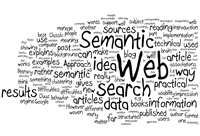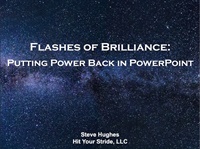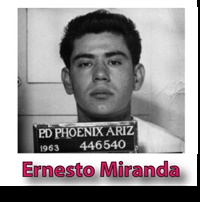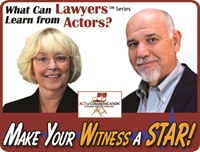
- Faculty:
- Roger J. Dodd, Esq.
- Duration:
- 1 Hour 30 Minutes
- Format:
- Audio and Video
- Short Description:
- In a series of four 90-minute webinars, Roger Dodd presents a completely integrated cross-examination system taught via learnable concrete principles. In each webinar Roger illustrates key principles and techniques of cross-examination to implement at trial and at depositions (in-person or online). His examples are based on dozens of real-life examples. Even if you don’t take the whole series...

- Faculty:
- Steven L. Taylor
- Duration:
- 1 Hour 33 Minutes
- Format:
- Audio and Video
- Short Description:
- This 90-minute presentation will review the Brady standard requiring prosecutors to turn over exculpatory evidence to the defense and will discuss some cases in which Brady has played a role, including the Brady case itself, the Duke Lacrosse case, and the Ted Stevens case. Timeline: (1) Overview of Brady Standard (35 mins) (2)&nb

- Faculty:
- Steve Hughes
- Duration:
- 1:01
- Format:
- Audio and Video
- Short Description:
- What if you could stand in front of an audience and deliver a presentation so powerful it captivated them from start to finish? You can if you understand body language, how people think, and what causes people to pay attention. This dynamic program combines the time-tested wisdom of the Greek philosophers with the latest insights from today’s leading storytellers: Madison Avenue and Hollywoo

- Faculty:
- Steve Hughes
- Duration:
- 1:01
- Format:
- Audio and Video
- Short Description:
- How would you like to snap your fingers and instantly judges, jurors, and clients would agree with your position? It may not be that easy, however you can dramatically improve your chances for success if you understand how people make decisions and what causes them to act. This dynamic CLE program draws on the latest scientific research to illustrate how you can ethically influence

- Faculty:
- Mark Rosch | Carole Levitt
- Duration:
- 1:00
- Short Description:
- More and more attorneys and judges are using social media, either for its intended purpose of social networking (and, for the lesser intended purpose of marketing) or for its unintended purpose of investigative research. There has been much discussion online amongst legal experts about what sorts of investigative activity is ethical for lawyers to engage in. Most Bar Associations however, have not yet addressed this topic. Two exceptions are the Philadelphia Bar and the New York State Bar.

- Faculty:
- Philip Bogdanoff, Esq.
- Duration:
- 1:00
- Format:
- Audio and Video
- Short Description:
- Hannah Gutierrez Reed, the armorer of the film “Rust” was found guilty of Involuntary Manslaughter for the 2021 on-set fatal shooting of cinematographer Halyna Hutchins. Alec Baldwin fired the fatal bullet believing that the gun was a cold gun and did not contain live ammunition. At Ms. Reed’s trial the prosecutor relied on visual evidence, film, pictures, and visual enhancements

- Faculty:
- Roger J. Dodd, Esq.
- Duration:
- 2:00
- Format:
- Audio and Video
- Short Description:
- To litigate in the COVID-19 era you need more than the traditional cross-examination techniques you’ve always relied on. COVID-19 has dramatically changed the face of litigation...kick-starting a technology shift in the practice of law that has already taken place in almost every other area of society. Zoom, Webex, and other remote platforms are now a regular part of the litigation and ...

- Faculty:
- Roger J. Dodd, Esq. | Olivia Espinosa | Steve Hohman
- Duration:
- 1 Hour 32 Minutes
- Format:
- Audio and Video
- Short Description:
- Professional improv actor and teacher, Steve Hohman, and legendary author and trial lawyer, Roger J. Dodd, connect the disciplines of cross-examination and improvisation. This engaging and innovative 90-minute video takes you through easy-to-follow strategies for the courtroom and introduces practical improvisational acting skills to help master Dodd's world-famous cross-examination techniques

- Author:
- Roger J. Dodd, Esq.
- Short Description:
- Since the last edition of the book published in 2017, the importance of depositions has increased substantially. As the subtitle of this book indicates - Your Depositions are Now Your Trials. Knowing how to cross-examine deponents is an absolutely essential skill for all litigators. Cross-examination for depositions gives you the tools you need to maximize your effectiveness at depositions.

- Author:
- Roger J. Dodd, Esq.
- Short Description:
- Cross-Examination: Science and Techniques has long been considered the gold standard for trial lawyers. This newly revised 4th Edition brings Roger Dodd and Larry Pozner’s proven methods into a single, definitive volume. Written in a practical, conversational style, it provides a complete system for planning and executing powerful cross-examinations — showing attorneys how to control t

- Faculty:
- Philip Bogdanoff, Esq. | Samantha D. Holmes, PhD
- Duration:
- 1 Hour
- Format:
- Audio and Video
- Short Description:
- Everyone has implicit biases that influence their judgment. However, when selecting a jury it is important for attorneys to uncover the implicit biases of prospective jurors to obtain a jury that can hear your client’s case fairly and impartially. Further, it is essential for attorneys to understand their own implicit biases and how they can influence your decisions when

- Faculty:
- Philip Bogdanoff, Esq. | Samantha D. Holmes, PhD
- Duration:
- 1:00
- Format:
- Audio and Video
- Short Description:
- Everyone has implicit biases that influence their judgment. However, when selecting a jury it is important for attorneys to uncover the implicit biases of prospective jurors to obtain a jury that can hear your client’s case fairly and impartially. Further, it is essential for attorneys to understand their own implicit biases and how they can influence your decisions when
Wed, Feb 18, 2026 - 10:00 AM to 11:00 AM PST

- Author:
- Tom O'Connor, Esq.
- Short Description:
- Electronic data has permeated every aspect of our lives, which means that ediscovery has become an essential component of almost every litigation matter. It used to be seen as a process reserved only for the big law firms – but not anymore. Today, everyone practices ediscovery. eDiscovery for the Rest of Us is a strategic and tactical resource for legal teams navigating the modern edis

- Faculty:
- Philip Bogdanoff, Esq.
- Duration:
- 2 Hours
- Format:
- Audio and Video
- Short Description:
- Prominent South Carolina attorney Alex Murdaugh was convicted of Murder and he filed a motion for new trial alleging that the clerk of courts tampered with the jury by advising them not to believe Murdaugh’s testimony and pressuring them to reach a quick guilty verdict. After an evidentiary hearing where a juror indicated they were influenced by the clerk to return a guilty verdict, the judge overruled the motion finding that there was insufficient evidence to overturn the jury’s verdict.

- Faculty:
- Philip Bogdanoff, Esq.
- Duration:
- 1 Hour 59 Minutes
- Format:
- Audio and Video
- Short Description:
- Prominent South Carolina attorney Alex Murdaugh was convicted of Murder and he filed a motion for new trial alleging that the clerk of courts tampered with the jury by advising them not to believe Murdaugh’s testimony and pressuring them to reach a quick guilty verdict. After an evidentiary hearing where a juror indicated they were influenced by the clerk to return a guilty verdict, the judge overruled the motion finding that there was insufficient evidence to overturn the jury’s verdict.

- Faculty:
- Charles H. Rose, III
- Duration:
- 1:29
- Format:
- Audio and Video
- Short Description:
- FRE 611 addresses witnesses and establishes the manner and scope of witness testimony during cross examination. While FRE 611 governs the form of cross examination questions, many other evidentiary rules also impact your ability to impeach witnesses. Prosecutors must understand the legal doctrine behind the rules governing impeachment. This presentation will show attendees how to begin ...

- Faculty:
- Philip Bogdanoff, Esq.
- Duration:
- 1 Hour 1 Minutes
- Format:
- Audio and Video
- Short Description:
- As a prosecutor, we all have our horror stories about witnesses. In this presentation, we will examine issues relating to witnesses including enforcing a subpoena of a witness, impeaching your own witness, witness competency, material witnesses, court witnesses, recalling witnesses, and other issues relating to witnesses. We will also review case law regarding witness tampering by defense

- Faculty:
- Philip Bogdanoff, Esq.
- Duration:
- 1 Hour 3 Minutes
- Format:
- Audio and Video
- Short Description:
- The admissibility and persuasiveness of expert testimony will often make or break a case. Prosecutors often rely on expert witnesses to prove the defendant’s guilt or innocence. In this presentation we will examine the admissibility of expert testimony both by the State and the defense. We will review various cases involving the admissibility of forensic evidence that can ...

- Faculty:
- Steve Hughes
- Duration:
- 1:01
- Format:
- Audio and Video
- Short Description:
- Smart attorneys know that it’s not enough to have the best argument or the perfect solution—you also need to be able to communicate ideas effectively. This is certainly the case when it comes to PowerPoint presentations. Flashes of Brilliance is a dynamic program that shows you how to create and deliver winning visual presentations regardless of your design...

- Faculty:
- Philip Bogdanoff, Esq.
- Duration:
- 1:01
- Format:
- Audio and Video
- Short Description:
- The purpose of interrogation is to elicit incriminating statements, admissions, and perhaps a full confession in order to prove the defendant’s guilt. A defendant’s own words that he committed the crime is very persuasive to a jury in proving a defendant’s guilt. In this presentation we will discuss what prosecutors must do to get a defendant’s confession admitted into ...

- Faculty:
- Philip Bogdanoff, Esq.
- Duration:
- 58 Minutes
- Format:
- Audio and Video
- Short Description:
- The first season of the Lincoln Lawyer series was the most popular English-language Netflix show having made the Top 10 in 90 countries. Although everyone enjoyed watching the exploits of the Lincoln Lawyer, Mickey Haller, was he ethical? The goal of this program is for attorneys to review the Rules of Professional Conduct while discussing this fascinating series...

- Faculty:
- Philip Bogdanoff, Esq.
- Duration:
- 1:00
- Format:
- Audio and Video
- Short Description:
- In season two, the Lincoln Lawyer, Mickey Haller, develops aromantic relationship with the owner of a Mexican restaurant, Lisa Trammel. He learns she is feuding with a developer who is attempting to take her property. The developer files a restraining order against Ms. Trammel and is subsequently murdered. When Ms. Trammel is charged with this Murder, the Lincoln Lawyer springs into action to defe

- Faculty:
- Philip Bogdanoff, Esq.
- Duration:
- 2 Hours 1 Minutes
- Format:
- Audio and Video
- Short Description:
- Where the Crawdads Sing is a novel that has sold over 15 million copies and has been created into a best-selling movie. In this murder mystery Catherine "Kya" Clark is accused of murdering Chase Andrews after their relationship ended. We will examine the trial by reviewing clips of this movie and discussing the trial tactics by the prosecutor and defense.

- Faculty:
- Michael Maschke, EnCE, CEH, ACE, CISSP
- Duration:
- 1 Hour 1 Minutes
- Format:
- Audio and Video
- Short Description:
- Electronic evidence plays a critical role in most cases. Frequently, relevant evidence is now found in the cloud and not on a local computer, server, or external hard drive. Businesses and consumers are using cloud services more than ever. Microsoft 365 has taken over the business world. Third-party messaging apps such as Instagram, TikTok, and WhatsApp continue to flourish. The cloud is now ...

- Faculty:
- Alan Blumenfeld | Katherine James | Andrew Caple-Shaw | Act of Communications | Anna Marie Thatcher
- Duration:
- 2:15
- Format:
- Audio and Video
- Short Description:
- How many times have you thought you prepared a witness perfectly only to have that witness fail – either just a little, or completely and disastrously? Do your problem witnesses keep you awake at night? Do some witnesses affect YOUR performance? You are not alone. Every attorney knows exactly what a “star witness” looks like, acts like, and performs like. A star witness is...
Please wait ...

